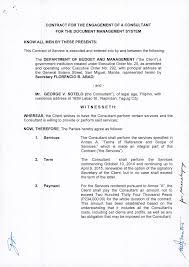
The average money management fee will be a question you ask when searching for an investment agent. Investment advisors typically charge between 0.25% and 0.30% for assets. This article will discuss the fees that three registered investment advisers charge. You can then make your own decision based upon your industry knowledge and your personal needs. And as always, remember to read the fine print to avoid paying more than you have to.
Assets from 0.25% up to 0.30%
Investment management fees are often charged by financial advisors as a percentage of the account balance. A portfolio with less than $250k will have a 1% fee. This is more than 0.25 percent of your balance after inflation. However, this is only the average. Although many advisors charge more that 1% of your account balance for their services, some charge less. Most advisors will increment their fee by 0.25% a year.

Investment advisors receive 0.25% - 0.30% of assets
Veres' data contains both fees for fee -only advisors, and total cost AUM. The costs of trading platforms and underlying investments are also included in fees. For investment advisors with less than $1,000,000 in AUM, fees are lower. They have remained stable but they have been increasing over time. Fees for financial planners with AUMs of $5 million or higher are typically 1.5% to 0.7%.
According to State Street Global Advisors, nearly half of investors believe that the cost of investing is included in the fee. Nearly half, including generation X and millennials, believe that fees include the cost of mutual funds. This is a common misconception among younger investors. 71% believe it. The fee for investing in mutual funds is not covered by the advisor's fee.
Registered investment advisors can receive assets from 0.25% to 0.300%
The average advisor fee for registered investment advisors is between 0.25% and 0.30% of AUM. The fees tend to decrease with asset value. Portfolios below $250k have a median fee of 1.25%, while assets above $1M have a median fee of 0.88%. A lot of advisors charge more then 1% of their AUM. The fees for advisors generally decrease with an increase in client account balance.

Schwab employees are paid more for SWA and advisory programs assets than they do independent contractors. Independent contractors, on the other hand, earn a monthly "Net Payout" from Schwab that they pay to IB Representatives. There are some promotional offers and individual agreements that can result in lower fees. Before choosing an investment advisor, understand their fees and the nature of your account.
FAQ
What was the origin of modern consultancy?
Consultants were originally accountants who could help companies manage their financial affairs. They were known as "accounting consults" because they are highly skilled in the management of financial information. They soon expanded their roles into other areas like human resources management.
The French word for advice, "consultant", was originally used to describe someone who could advise on the management of an organization. The word consultant is still used by most business owners to refer to any kind professional advisor.
What skills are required for consulting?
A consultant should have strong analytical skills as well as interpersonal skills. This is crucial because you might not be able to understand what you are doing when you work on complex projects. This is a must because you need to learn how quickly you can manage people.
Communication skills are essential. Clients expect a response within 24 hours. If they don’t hear back, they assume that you aren’t interested. It's crucial to keep them informed and make sure they understand everything.
How long does it usually take to become an expert consultant?
Depending on your industry and background, the time required will vary. People start work with a few weeks before they find employment.
However, some consultants spend several years honing their skills before finding work.
What can I expect from my consultant?
When you choose your consultant, they should respond within a few working days. They will typically ask for information about the company, such as its mission, goals. products and services. budget. After that, they will send you a proposal detailing the scope of work, expected time frame, fees and deliverables.
If everything looks good, then the two parties will negotiate a written contract. The type relationship between the two sides (e.g. employee-employer or independent contractor-employer) will dictate the terms of the contract.
If all goes according to plan, the consultant will begin working immediately. You will have access both to your documents and internal resources and the consultant's skills and knowledge.
However, don't assume that just because someone is a consultant that s/he knows everything. It takes effort and practice to become an expert in whatever field you consult. So, don't expect your consultant to know everything about your business.
Why would a company want to hire a consultant for their business?
Consultants provide expert advice on how to improve the performance of your business. They don't sell products.
Consulting helps companies make better decisions. They provide sound analysis and offer suggestions for improvement.
Senior management teams often have consultants working closely with them to help them understand their needs.
They also provide leadership training and coaching to ensure employees develop the skills necessary to perform at peak levels.
They can help businesses reduce costs, streamline processes, and increase efficiency.
What jobs are available as consultants?
A job as a consultant requires you to have an excellent understanding of business strategy and operations. Understanding the business world and how it fits into society is essential.
A career as a consultant requires you have great communication skills and a strong ability to think critically.
Because they might be required to complete different tasks at different times, consultants must be flexible. They should be flexible enough to change direction quickly if needed.
They must be willing to travel for their clients. This type of work can take them all over the world.
They also need to be able to handle pressure and stress well. Consultants may need to meet strict deadlines.
As a consultant, you may be expected to work long hours. This can mean you might not always receive overtime compensation.
Why should you hire consultants?
There are many reasons why you might need to hire consultants:
-
An organization might have a particular problem or project that requires solving
-
You want to increase your skills and learn something new
-
You want to work with an expert in a particular field
-
You have no other choice but to do the job.
-
You feel overwhelmed with all the information you see and don’t know where it is.
-
It's impossible to afford to hire someone full-time.
Word of mouth is the best way to find a great consultant. Ask around if anyone knows any reputable consultants. If you already know someone who works as a consultant, ask him/her for recommendations.
Use the "Search People" function to search for consultants in your region if you are interested in using online directories like LinkedIn.
Statistics
- WHY choose me: Why your ideal client should choose you (ex: 10 years of experience and 6-week program has helped over 20 clients boost their sales by an average of 33% in 6 months). (consultingsuccess.com)
- Over 50% of consultants get their first consulting client through a referral from their network. (consultingsuccess.com)
- Over 62% of consultants were dissatisfied with their former jobs before starting their consulting business. (consultingsuccess.com)
- According to IBISWorld, revenues in the consulting industry will exceed $261 billion in 2020. (nerdwallet.com)
- 67% of consultants start their consulting businesses after quitting their jobs, while 33% start while they're still at their jobs. (consultingsuccess.com)
External Links
How To
How to start a consulting company and what should I do first?
Start a Consulting Company to make some extra money from home. You don't need any previous business experience or investment capital. You can start your own consulting firm by building a website. To promote your services, you will need to create a website.
These tools will allow you to create a marketing plan which includes:
-
Create content (blogs).
-
Contacts are essential for building relationships
-
Generating leads (lead generation forms)
-
Selling products (eCommerce websites)
After you have developed your marketing strategy, it's time to find clients willing to pay for your services. Some people prefer to go through networking groups and events, while others prefer to use online methods such as Craigslist, Kijiji, etc. The decision is up to each individual.
Once you have found clients, you should discuss terms and payment options. This could include flat fee contracts, hourly fees or retainer agreements. It's important to know what you expect before accepting a client so you can communicate clearly throughout the process.
The most common type of contract for a consultancy service is an hourly agreement. This type of contract requires you to provide certain services at fixed rates each week or month. You may be eligible to negotiate a discount, depending on the service that you offer. You must fully understand the contract you're signing before you agree to it.
The next step is to create invoices and send them to your clients. Invoicing is one those things that seem so simple until you actually do it. There are many ways to invoice clients. It all depends on your preference. Some people prefer to email their invoices directly, while others prefer to mail them hard copies. No matter what you do, make sure it works!
After you've finished creating invoices, you'll want to collect payments. PayPal is preferred by most people because it is simple to use and offers many payment options. However, other payment processors are available, including Stripe, Square Cash, Google Wallet, Apple Pay, Venmo, etc.
Once you are ready to start collecting payments, it is time to open bank accounts. You can track income and expenses separately by having separate savings and checking accounts. When paying bills, it is also beneficial to set up automatic transfer into your bank account.
When you start a consultancy business, it may seem overwhelming, but once you learn how to do it correctly, it becomes second nature. This blog post will provide more information about starting your own consultancy business.
It's a great way for extra income without having to worry about hiring employees. Remote consultants don't need to be tied down by office politics or work long hours. Since you are not tied down by regular working hours, you have more flexibility than a traditional employee.